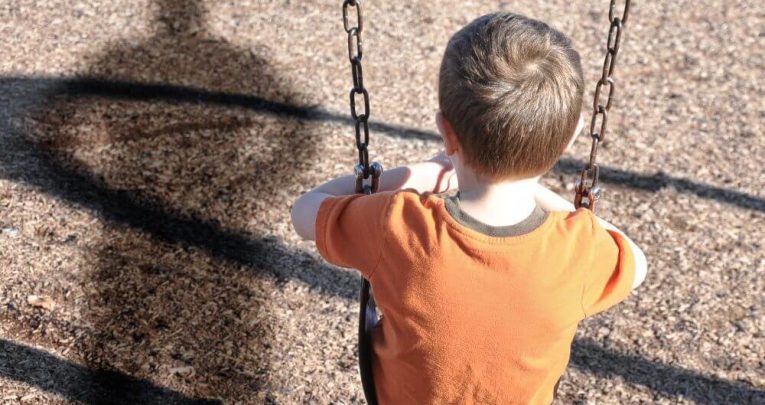Child discipline – Teachers need training about talking to parents about physical punishment

New legislation in Wales outlaws physical punishments for children – teachers have a role to play in spreading this message, says Rhian Kenny…

- by Rhian Kenny

Wales is entering a historic period which will see children’s rights further protected thanks to new Welsh Government legislation.
The Children (Abolition of Defence of Reasonable Punishment) (Wales) Act 2020 will remove an archaic legal defence by outlawing the physical punishment of children when it comes into force in Wales on 21 March 2022.
As a headteacher of a bilingual primary school with 198 pupils I welcome this new legislation. I am personally committed to delivering the best possible outcomes for the children in my care and physical punishment should never be a way to discipline a child. It’s great that children in Wales will now be given the same rights as adults when it comes to protection from common assault as they are much more vulnerable.
I certainly wasn’t aware of the amount of trauma physical punishment can cause children before we had trauma informed training at school, so I’m sure other adults won’t know either.
If you struck an adult, you wouldn’t be able to say it is reasonable so that is OK; and now children will be given equal protection against such situations here in Wales.
Schools offer a safe haven and it can be confusing for some children as there are obviously strict boundaries at school, but discipline here does not involve physical or emotional punishment whereby they might have become used to it at home.
I can foresee more disclosures in school as children realise their rights and that’s a good thing.
Our school is a mix of some of the most affluent and pockets of less affluent areas. Following the pandemic, we’ve noticed a huge change in the impact on families. People have been home all the time and the stress of being together 24/7 can be too much for some.
There’s a lot of hidden harm which has gone on and been made worse by not having the ability to report this harm.
We did our best to bring the most vulnerable pupils to school – roughly around 25% of our pupils – as we could see families were struggling. It meant children were safe with us and it gave families some form of normality, reducing daily pressures on the family unit.
As we are a village school, we tend to know the ones who are struggling so could intervene.
It is important to be clear this legislation does not create a new offence; it simply removes an outdated legal defence. There are misconceptions that a new criminal law will be created. There won’t.
The legislation simply clarifies a grey area for those of us working with children and parents, by making it crystal clear the physical punishment of children is no longer legal in Wales.
Society has undoubtedly changed and attitudes to physical punishment towards children has already changed to some degree, but these attitudes cannot be taken for granted. I think thought needs to be given on support mechanisms for parents who tend to use their hands to punish.
It might have been the way they were brought up and we have to say we understand that however there are other ways of disciplining your children which are far more effective.
I’m from the era of corporal punishment and had the cane for just talking in school. I’m still a big talker so it obviously didn’t work!
I was very lucky to have a mother who was so far ahead of her time. She brought in positive behaviour management before it had ever been thought about. She banned me from the swimming pool for a week as I really lost my temper.
I even asked for a smack instead so I could go back to the pool with my friends and she refused. I was basically grounded for a week and I never forgot it. She stuck to her guns despite me nagging for a week and I learnt so much from that. She was an incredible woman and a wonderful teacher.
However, I think today it is much more acceptable for parents to say they don’t know all the answers and to ask for help.
I will usually invite the parents into school as I understand their frustrations in bringing up children. I get how angry they’re feeling. However, they need to know the law is changing. I have to be tough skinned as parents will often look to blame somebody and it’s usually me.
I am the children’s champion, to be honest. That’s how I see my role. I tell them I have a very important job to keep the children safe. It is more important than running the school.
Training for headteachers on how to hold these conversations with parents is important. It’s not an easy thing to do as you feel vulnerable, but you know you are doing the right thing. It’s everybody’s business to protect that child as unless dealt with now, the same issues will simply show up when they become a parent themselves.
Parents need to know they are not alone, and they are not bad people, just sometimes making bad choices. We’re not social services, but I think parents trust teachers and we have an important role to play in spotting problems and dealing with them as best we can within the community.
Unless we get the mental health wellbeing of our children right there’s going to be problems for years to come. I want to ensure as many as possible of my fellow teachers are trauma informed trained.
Children have the right to be safe, but they also have to understand and take on the responsibility that there are boundaries as well. This law is simply about removing a physical deterrent. You are not removing a parent’s means of disciplining children.
Getting parents to understand the impact of their behaviour is key. Children can’t see the difference. If mummy or daddy hits them because they’ve done something wrong, then if somebody does something wrong to them they’ll just hit out themselves.
Times have changed and fortunately nowadays help is available for parents who are struggling. Today there is an initiative here in Wales called ‘Parenting. Give it time’. It offers reassurance to parents on everyday things such as feeding, sleeping, development and offers tips such as how to take a step back or take ten breaths.
It’s about normalising the experiences and making it easier to talk about them. The education sector will play a part in raising awareness of this legislation, not only through informing parents and carers, but also by making children aware of their own rights; there is a balancing act at play here and we have to get it right.
2020 may have been an odd year but it was a good year for putting children centre stage here in Wales. Passing this law helps to protect children’s rights and removes any ambiguity about what level of physical punishment is considered reasonable.
Rhian Kenny is headteacher at Ysgol yr Hendy, Pontarddulais, Carmarthenshire.







